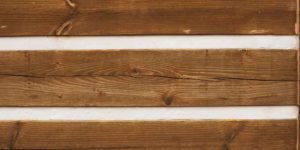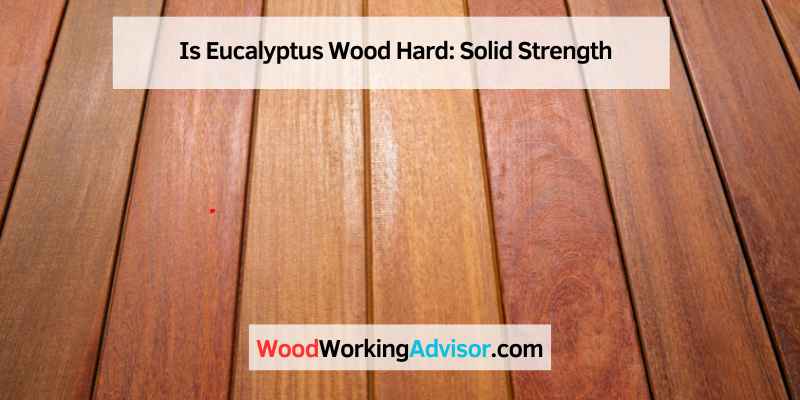Eucalyptus wood is classified as a hardwood and is considered hard.
Eucalyptus Wood Hardness
Eucalyptus wood is known for its remarkable hardness, making it a popular choice for various applications. Its Janka hardness rating ranges from 700 to 1,300, depending on the species, putting it on par with some of the most durable hardwoods such as oak and maple.
One of the key advantages of eucalyptus wood is its sustainability. It is a fast-growing tree, which means that it can be harvested in a relatively short time, making it a renewable resource. Additionally, its natural resistance to rot and decay enhances its durability, making it suitable for various outdoor applications such as decking, furniture, and structural support beams.
Strength And Durability
Eucalyptus wood is renowned for its exceptional strength and durability, making it a popular choice for various applications. Its solid structure, smooth finish, and sustainability are key factors that set it apart as a dependable hardwood option.
Structural Support
Eucalyptus wood is renowned for its strength and durability, making it an excellent choice for structural support in buildings and outdoor structures. With its classification as a hardwood, eucalyptus can provide sturdy beams that offer reliable support and stability. Whether you’re constructing a pergola, deck, or even a wooden fence, eucalyptus wood can withstand heavy loads and provide long-lasting structural support.
Resilience To Weather
One of the key advantages of eucalyptus wood is its resilience to various weather conditions. Eucalyptus has natural oils that help protect it against moisture damage, making it highly resistant to rotting, warping, and decay. Whether it’s exposed to scorching heat, heavy rain, or extreme cold, eucalyptus wood maintains its strength and durability, making it a reliable choice for outdoor furniture and structures.
To further enhance its weather-resistant properties, proper finishing and maintenance are crucial. Applying a waterproof sealant can help prolong the lifespan of eucalyptus wood and protect it from UV rays, preventing color fading and maintaining its natural beauty for years to come.
In conclusion, eucalyptus wood’s strength and durability make it a suitable choice for structural support in buildings and various outdoor structures. Its resilience to weather conditions further adds to its value, providing long-lasting performance and aesthetic appeal. Whether you’re looking to create a beautiful outdoor space or construct a sturdy structure, eucalyptus wood proves to be a reliable and sustainable option.
Disadvantages Of Eucalyptus Wood
Eucalyptus wood is hard and durable, making it ideal for various applications. However, it is susceptible to extreme cold, insect attacks, and color fading over time, which are some of its disadvantages. Proper maintenance and care are essential to preserve its quality.
Vulnerability To Pests
Eucalyptus wood is susceptible to various pests which can cause damage over time. Termites and other wood-boring insects can infest eucalyptus wood, leading to structural integrity issues.
Color And Essence Fading
One of the drawbacks of eucalyptus wood is its tendency to fade in color and lose its natural essence over time. Exposure to sunlight and outdoor elements can accelerate this process, resulting in a dull appearance.
Comparative Analysis
Eucalyptus wood is highly valued for its robustness and strength, making it an outstanding choice for various applications. Let’s delve into a comparative analysis to understand how eucalyptus wood measures up against other popular hardwoods, including teak and other hardwood species.
Eucalyptus Vs. Teak
Eucalyptus and teak are both renowned for their durability and resistance to moisture, making them ideal for outdoor furniture and decking. While teak is often praised for its natural oils that render it highly resistant to rot, Eucalyptus, with its similar density and durability, can be a more sustainable and cost-effective alternative.
Eucalyptus Vs. Other Hardwoods
When compared to other hardwoods such as oak, cherry, and mahogany, eucalyptus stands out for its exceptional strength and stability. It is crucial to consider the moisture content, finishes, and manufacturing techniques when evaluating the performance of different hardwoods. Eucalyptus wood, being a plantation-grown hardwood that is sustainably harvested, offer great durability, beautiful grain, and requires minimal maintenance, making it a desirable choice for various applications.
Practical Applications
Eucalyptus wood is known for its hardness and durability, making it a practical choice for various applications. Whether it’s used for outdoor furniture, structural support beams, or fencing, eucalyptus wood provides strength and long-lasting performance.
Outdoor Furniture
Eucalyptus wood is a popular choice for outdoor furniture due to its durability and strength. As a hardwood, it is naturally resistant to rot and decay, making it ideal for withstanding the elements.
Whether it’s a patio set, deck chairs, or a garden bench, eucalyptus wood can handle the rigors of outdoor use. Its solid structure ensures longevity, allowing you to enjoy your outdoor furniture for years to come.
Furthermore, eucalyptus wood has a beautiful grain and a smooth finish, giving your outdoor space a sophisticated and stylish look. Maintenance is minimal, requiring only occasional oiling or sealing to maintain its appearance.
Construction Material
Eucalyptus wood’s durability and strength make it an excellent choice as a construction material. It can be used for structural support beams in buildings and other outdoor structures, thanks to its classification as a hardwood.
With eucalyptus wood, you can trust that your construction projects will stand the test of time. Its resistance to rot and decay ensures the integrity of the structure, even in harsh weather conditions.
Additionally, eucalyptus wood is sustainably harvested and readily available, making it an environmentally-friendly choice for construction. It is a renewable resource that can be responsibly utilized without depleting natural forests.
In conclusion, eucalyptus wood’s practical applications are extensive. Its durability and strength make it suitable for outdoor furniture and construction projects, ensuring longevity and reliability. Consider incorporating eucalyptus wood into your next outdoor or construction project for a sustainable and stylish solution.
Challenges With Eucalyptus Wood
Eucalyptus wood is popular for its sustainability and strength, but it does come with its own set of challenges. Understanding these challenges is important, especially for individuals working with this type of wood. Let’s take a look at some of the challenges associated with eucalyptus wood.
Difficulty In Processing
When working with eucalyptus wood, one of the primary challenges is the difficulty in processing. The wood is known for its high density, which can make it tough to cut, shape, and manipulate. Due to its hardness, special tools and equipment may be required for effective processing. The density of eucalyptus wood can also pose challenges during crafting and woodworking, requiring additional effort to achieve desired shapes and designs.
Burning Considerations
Another notable challenge with eucalyptus wood is its burning considerations. While eucalyptus wood can be used as fuel, there are important factors to consider. Eucalyptus wood has a high oil content, making it prone to producing more smoke and sparks than other wood types when burned. Additionally, the high density of eucalyptus wood means it burns at a slower rate, requiring careful management of airflow and combustion to achieve optimal burning results.

Frequently Asked Questions For Is Eucalyptus Wood Hard
Is Eucalyptus Wood Harder Than Oak?
Yes, eucalyptus wood is harder than oak, with similar advantages and disadvantages. Both require proper manufacturing processes, moisture content, and finishes for optimum quality. Eucalyptus is a sustainably harvested hardwood with great durability, strength, and minimal maintenance needs.
Is Eucalyptus Wood Strong?
Eucalyptus wood is incredibly solid and durable for various applications due to its strength and sustainability. It has a beautiful grain, a smooth finish, and requires minimal maintenance. With its high-quality, kiln-dried timber, it is a reliable and strong wood choice.
What Are The Disadvantages Of Eucalyptus Wood?
Disadvantages of eucalyptus wood include susceptibility to cold, insects, color fading over time, and limited availability in hardwood lumber yards.
Is Eucalyptus Hard Or Soft Wood?
Eucalyptus wood is a hard wood, known for its durability and strength. It is commonly used for outdoor furniture and construction projects.
Conclusion
Eucalyptus wood is a durable and sustainable option for various purposes. It is classified as a hardwood and boasts great strength and durability. Its smooth finish and beautiful grain require minimal maintenance. However, it is important to consider factors such as moisture content, manufacturing techniques, and finishes when choosing eucalyptus wood.
Overall, eucalyptus wood offers a sturdy and eco-friendly choice for your woodworking projects.


